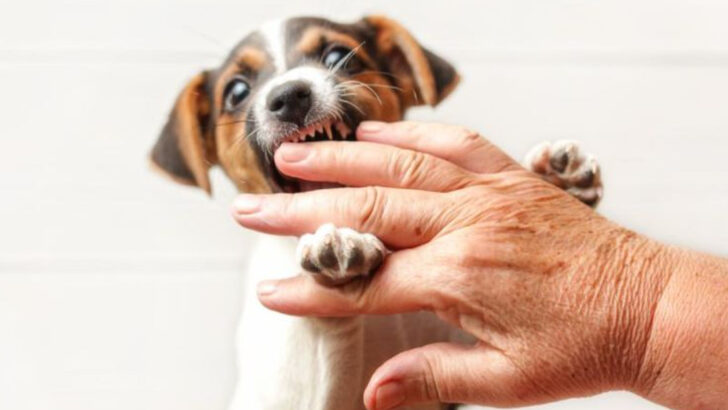Those tiny teeth feel like needles—and your ankles know it all too well.
Puppy biting isn’t cute for long. One minute they’re cuddling, the next they’re treating your hands like chew toys. It’s frustrating, it’s exhausting, and yes—sometimes it makes you question your life choices.
But don’t worry. You’re not raising a tiny land shark. You’ve got a puppy who’s just trying to figure out the world—with their mouth.
Biting is normal, but that doesn’t mean you have to live with it.
Whether you’re dodging sneak attacks during playtime or prying your sleeves from their jaws, relief is on the way. We’re diving into the tips that actually work, so you can enjoy your pup without wearing battle scars.
Provide Chew Toys
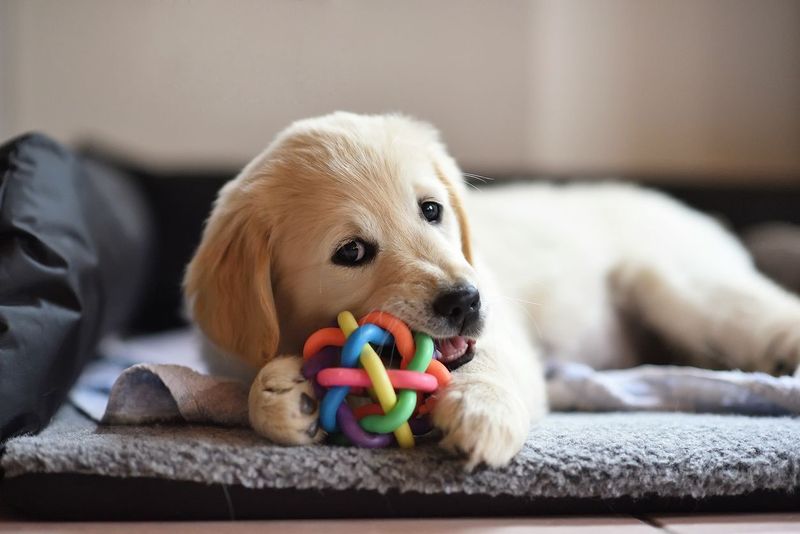
Chew toys serve as fantastic distractions for biting puppies. When your puppy starts to bite, redirect their attention to a chew toy. This not only satisfies their natural urge to chew but keeps your fingers safe from those sharp little teeth. Ensure the toys are of different textures to keep their interest piqued.
Opt for rubber or nylon toys that are durable and non-toxic. Always supervise playtime to prevent any accidental swallowing. Over time, your puppy will learn that toys, not hands or shoes, are the right things to chew.
Use Positive Reinforcement
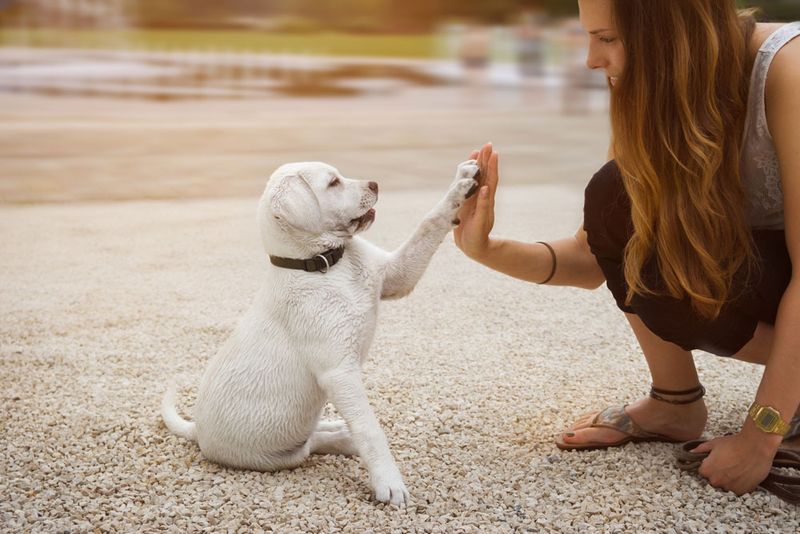
Positive reinforcement is a powerful tool in training. Whenever your puppy refrains from biting, reward them with a treat and plenty of praise. This builds a positive association with not biting.
Consistency is key; ensure everyone in the household follows the same rewarding routine. This method not only reduces biting incidents but also strengthens the bond between you and your pup. Remember, patience and persistence are vital for lasting success.
Teach Bite Inhibition
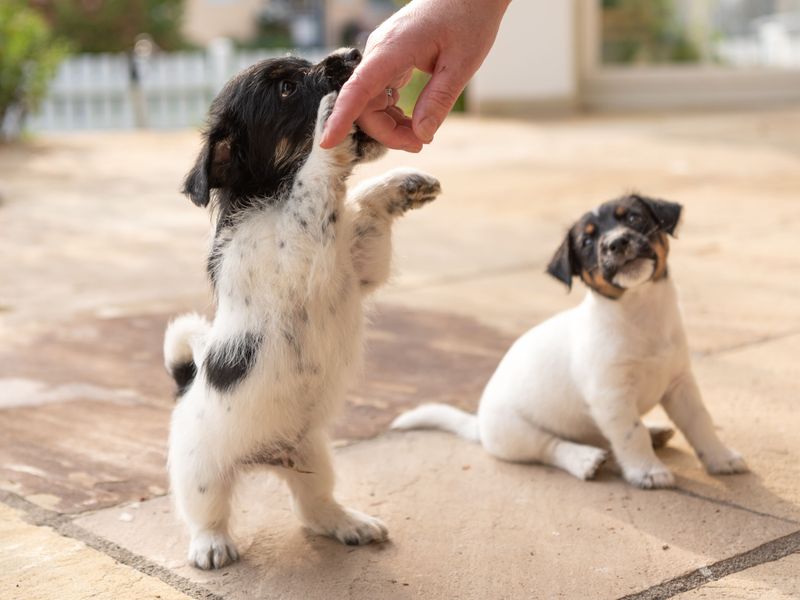
Teaching bite inhibition is essential for managing puppy biting. Allow your puppy to play with older, well-behaved dogs who can teach them control.
When your puppy bites too hard, let out a yelp or say ‘ouch’ loudly, mimicking how puppies signal discomfort. This technique helps them understand the limits of their bite. Gradually, your puppy will learn to gauge their bite pressure. By being consistent, they’ll develop a softer mouth and better manners.
Socialize Your Puppy
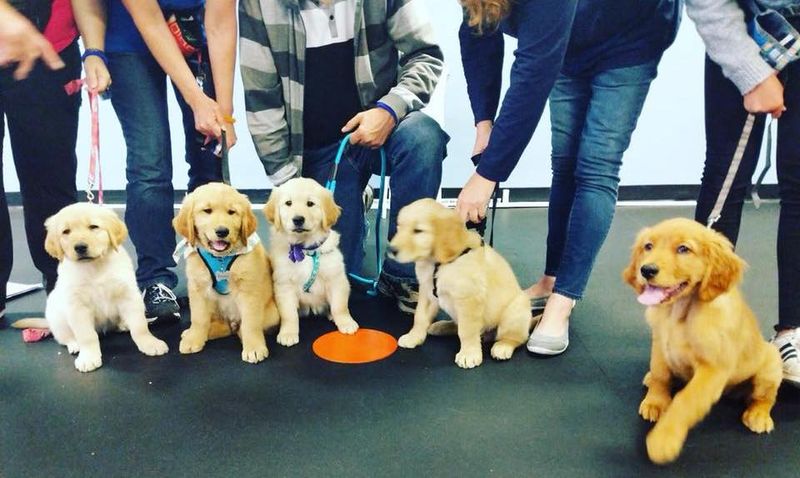
Socializing your puppy from a young age is crucial. Expose them to different environments, people, and other dogs.
This exposure helps them learn how to interact appropriately, reducing the urge to bite out of fear or excitement. Join a puppy socialization class, where supervised interactions can enhance their social skills.
Through consistent socialization, your puppy becomes more confident and less likely to use biting as a means of communication.
Use Deterrent Sprays
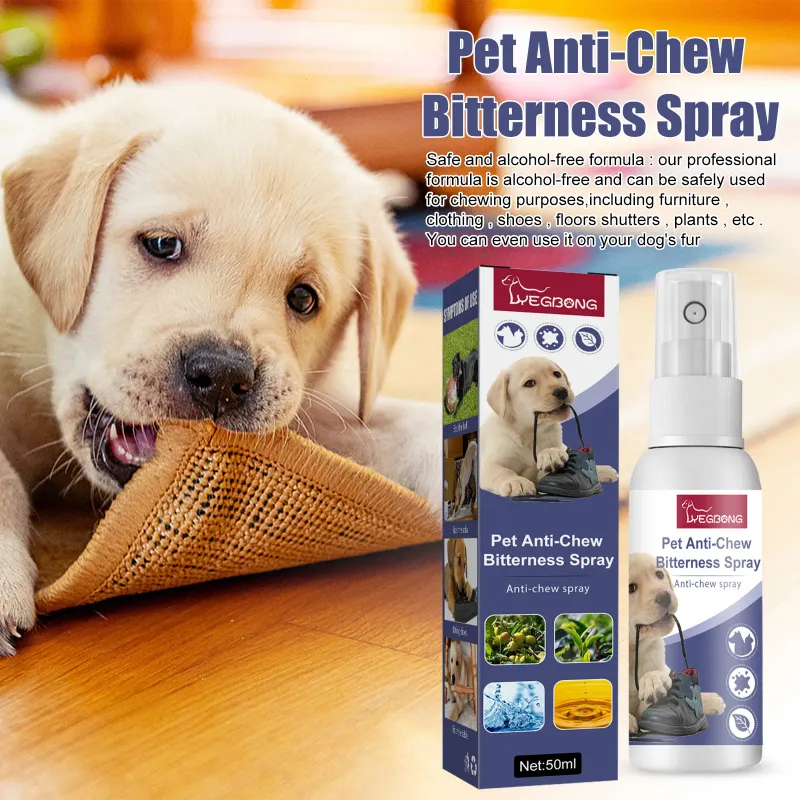
Deterrent sprays can be effective in discouraging biting. These sprays have a bitter taste that dogs dislike. Apply it to your hands or furniture to prevent your puppy from biting.
Ensure that the spray is non-toxic and specifically designed for puppies. Always follow the instructions carefully to avoid any adverse effects. Over time, your puppy will associate the unpleasant taste with biting, which should reduce the behavior.
Establish a Routine
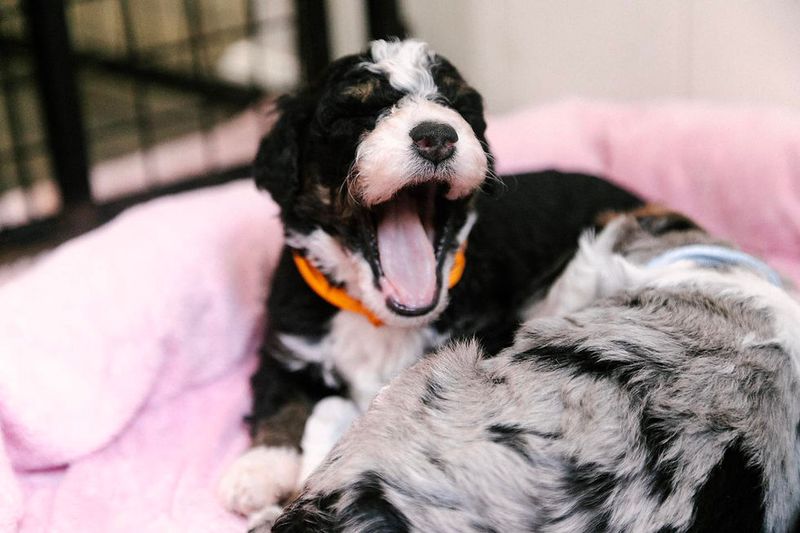
Puppies thrive on routine. Establishing a consistent daily schedule helps reduce anxiety and unwanted biting behaviors.
Include regular meal times, potty breaks, play sessions, and training exercises. This routine not only keeps your puppy occupied but also instills a sense of security. A well-structured day reduces the likelihood of boredom-induced biting.
With time, your puppy will understand and adapt to the expectations set by this routine, leading to a more harmonious home environment.
Redirect Attention
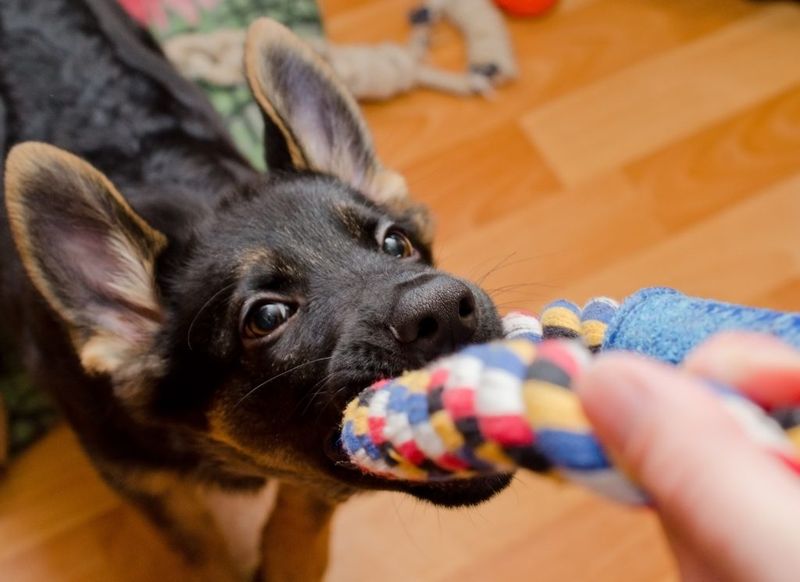
Redirecting your puppy’s attention is a simple yet effective technique. When your puppy begins to bite, quickly offer them a toy or engage them in a different activity.
This distraction teaches them that biting isn’t acceptable and there are better ways to get attention. Consistency in this approach helps reinforce the message. Over time, your puppy will learn that their actions have consequences and choose more appropriate behaviors instead.
Practice Crate Training
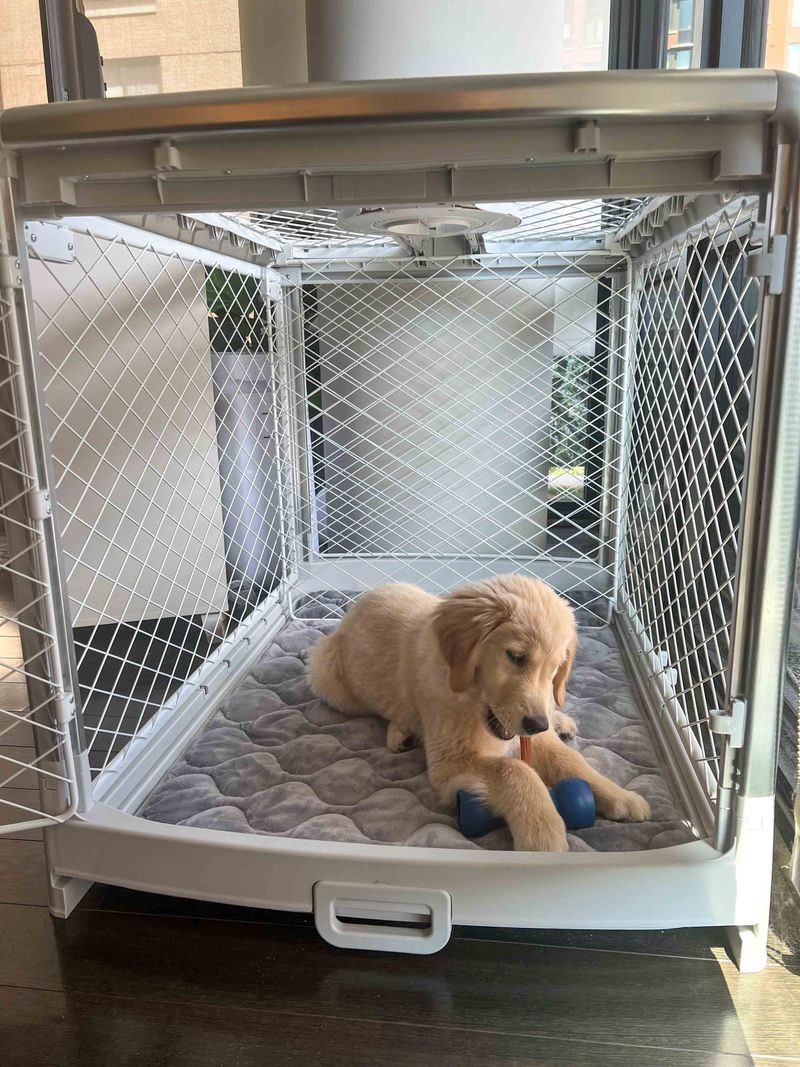
Crate training can mitigate biting behaviors by providing a secure space for your puppy to retreat. Introduce the crate as a positive haven where they can relax.
Never use the crate as punishment; it should be a place of comfort. A well-trained puppy will view the crate as their den and feel secure enough not to bite due to anxiety or overexcitement.
This method fosters independence while reducing the incidences of biting in stressful situations.
Learn to Say ‘No’ Firmly
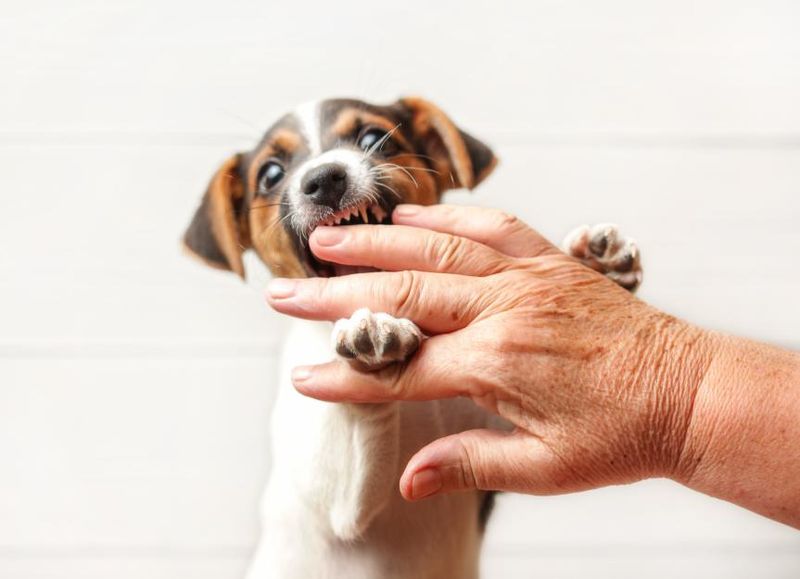
Teaching your puppy the meaning of ‘no’ is crucial. When biting occurs, say ‘no’ firmly but calmly to communicate that the behavior is unacceptable.
Avoid yelling or physical punishment, as this can lead to fear and anxiety. With consistency, your puppy will understand that biting results in a negative response. Reinforce good behavior with praise to balance correction with encouragement.
Provide Plenty of Exercise
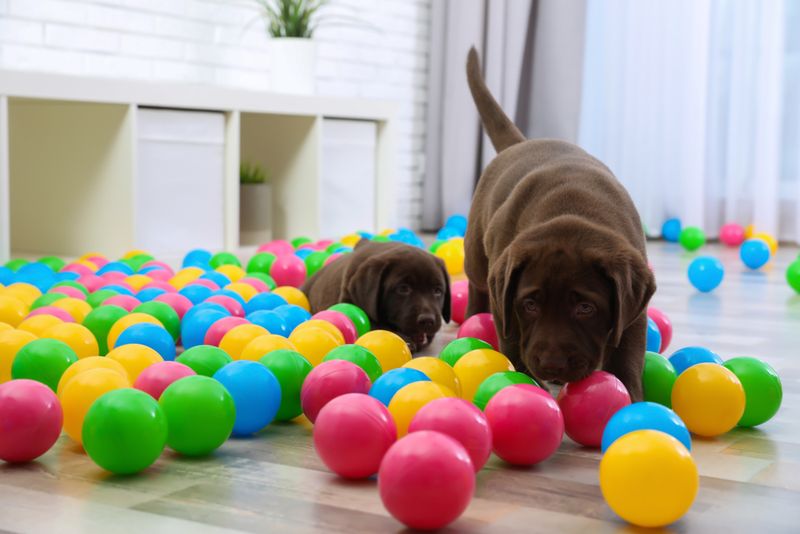
A well-exercised puppy is less likely to engage in biting out of boredom or excess energy. Regular walks, play sessions, and mental stimulation are essential.
Interactive toys and games like fetch or tug-of-war are excellent for burning off energy. A tired puppy is a happy, well-behaved one, less prone to bite.
Make exercise a part of your daily routine to ensure your puppy has the outlet they need for their boundless energy.
Consult a Professional Trainer
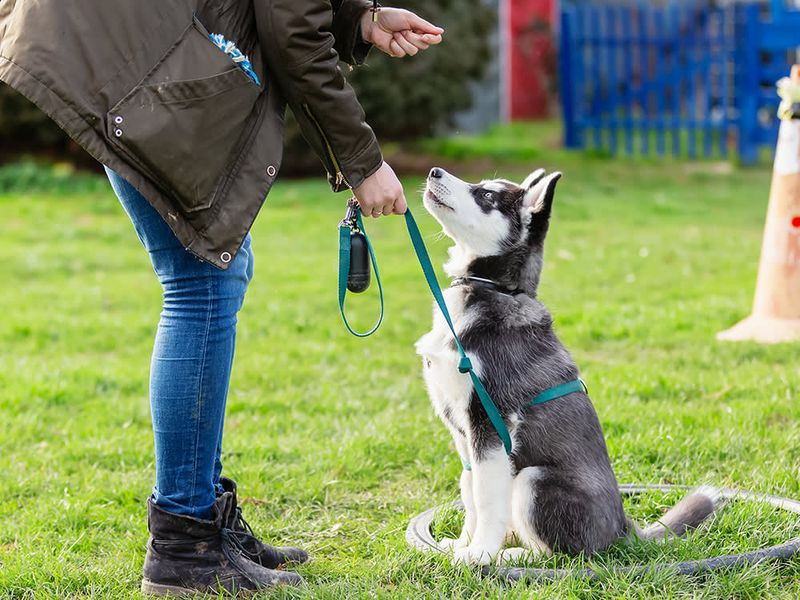
Sometimes expert guidance is needed to address persistent biting. Professional trainers can offer tailored strategies to curb this behavior.
These experts have the experience and knowledge to handle various temperaments and can teach you effective techniques. Attending a few sessions can make a significant difference.
Investing in professional training provides long-term benefits, leading to a better-behaved and happier puppy.
Be Patient and Consistent
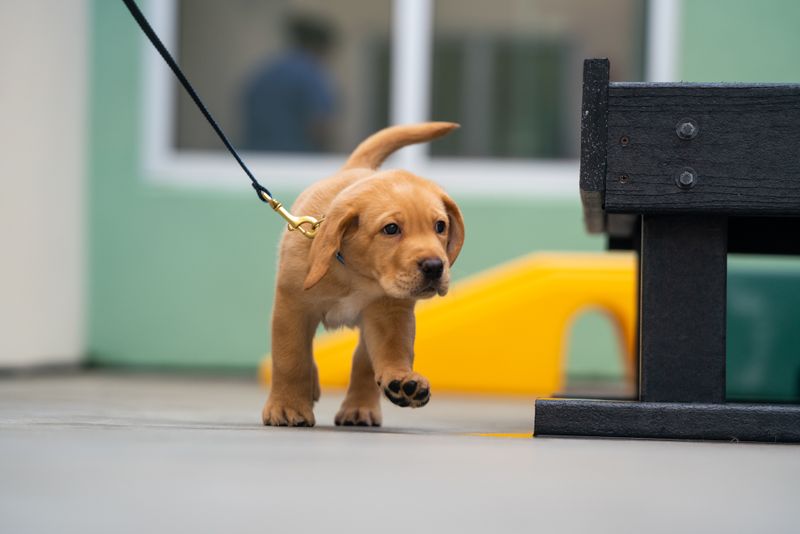
Patience and consistency are the cornerstones of successful puppy training. Biting is a phase that requires time and dedication to overcome.
Consistency in applying the same rules and rewards ensures your puppy understands expectations. It’s essential to remain calm and patient during setbacks.
Celebrate small victories and progress, reinforcing positive behavior. Over time, your puppy will grow into a well-mannered companion.
Provide a Variety of Activities
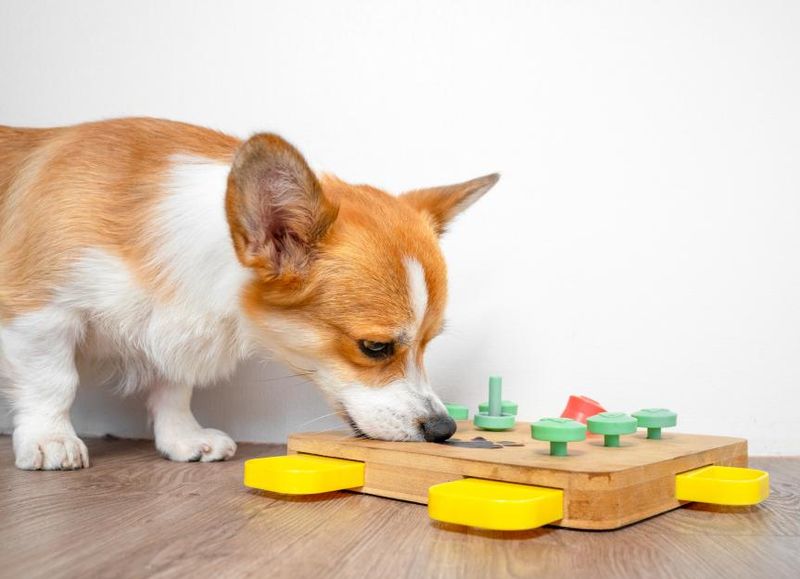
Keeping your puppy mentally and physically stimulated reduces biting. Introduce a variety of activities like puzzle toys, agility exercises, or scent games.
Varied activities prevent boredom and channel energy into constructive outlets. Regularly change the types of activities to maintain interest.
An engaged puppy focuses less on biting and more on exploring the world around them. This approach helps instill positive behaviors and strengthens your bond.

